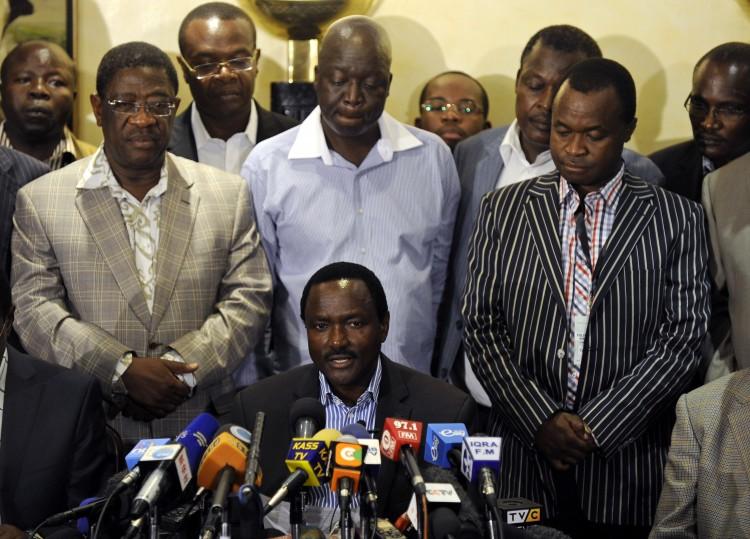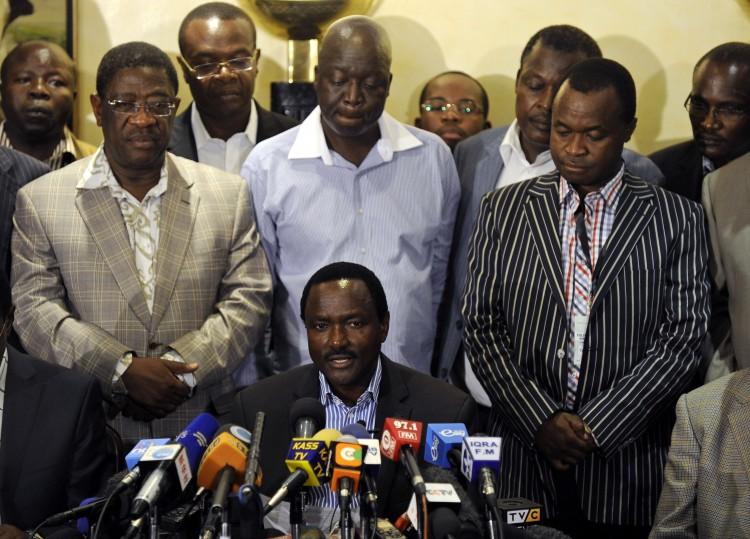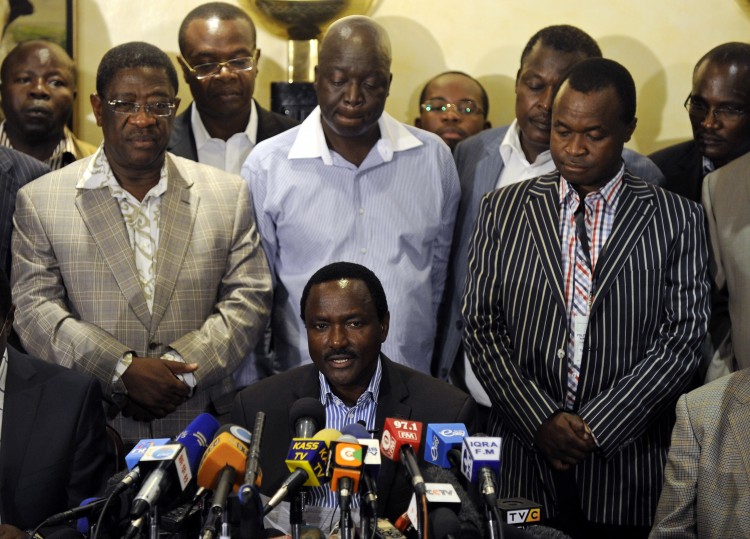Kenyan elections could turn violent as in 2007 when disputed results caused a violent clash. Prime minister and presidential candidate Raila Odinga’s camp is calling foul on vote counting that has been delayed for days by equipment failures.
Kenyan Elections: Fraud Allegations Could Upset Fragile Peace
Kenyan elections could turn violent as in 2007 when disputed results caused a violent clash. Prime minister and presidential candidate Raila Odinga’s camp is calling foul on vote counting that has been delayed for days by equipment failures.

Kalonzo Musyoka (bottom), Kenya's outgoing vice president and running mate of CORD alliance's presidential candidate Prime Minister Raila Odinga, gives a press conference flanked by other alliance members on March 7, 2013, in the Kenyan capital, Nairobi. He alleges that vote results have been "doctored" and demands a halt to vote counting, stressing, however that his accusations are "not a call to mass action." Tony Karumba/AFP/Getty Images
|Updated:






